youtube podcast #1 お金や支払いに関する日本語
健人:「みなさん、こんにちは!僕は健人です。」
詩織:「そして、私は詩織です。『日本語ペラペラチャンネル』へようこそ!」
健人:「このチャンネルでは、学校では教えてくれない、教科書にも載っていない、リアルな日本語の日常会話をみなさんにお届けします。」
詩織:「そうですね。今日のテーマは、みんなが気になる『お金』に関する表現です。」
健人:「会話がちょっと速いかもしれませんが、心配しないでくださいね。」
詩織:「会話の後には、由紀子先生が丁寧に解説してくれますから。」
健人:「それでは、早速始めましょう!」
 ○○
○○
小銭(こぜに)に関する日本語
小銭について
健人:「詩織さん、いつも小銭、どうしてる?」
詩織:「私、自動販売機で飲み物を買う時やコインパーキングに車を停める時に使うよ。だから、いつも少しは持ってる。」
健人:「ああ、なるほど。自動販売機ってまだタッチ決済に対応していないところが多いもんね。僕はなるべく荷物を減らしたいから携帯と財布の中にはお札を少しだけ入れて小銭は持ち歩かないんだ。だから、飲み物を買いたいとき、自販機で小銭持ってなくて、友達に150円借りたりして、時々失敗することがあるよ。」
詩織:「そうだね、だから、最低限、飲み物を買う小銭ぐらいは持ってなきゃ。それに近所の小さな商店とか、現金しか受け付けていないところもあるし。でも、やっぱり小銭を使う機会が減ったから小銭が貯まって困ってる。」
健人:「僕は小銭がたまると、銀行で紙幣に両替してもらうんだ。貯金のつもりじゃないけど、お釣りでもらった小銭がいつの間にか貯まっていて、1万円とかになると、なんだかちょっと得した気分になるよ。」
詩織:「なるほどね、私もこれから小銭を入れる貯金箱に入れて、貯まったら銀行で両替してもらおうかな。ちりつもだね。」
健人:「ほんとほんと。ちりも積もれば山となる。普段はバカにしている1円玉や10円玉でも貯まったら1万円という大きな山になって返って来る。昔の人はうまいこと言ったもんだね。」
詩織:「そうだね。1円を笑うものは1円に泣くともいうしね。小銭でも大切に使わなきゃね。」
由紀子:最近では、小銭を使うチャンスがほんとうに減りましたよね。でも、全く小銭が要らないかというと、そうでもない。二人の会話にあったように、自販機でジュースを買う時や、コインパーキングに車を止めた時、そして近所のお気に入りの新鮮な野菜を提供してくれる八百屋さんでは、いまだに現金のみの支払いしかできません。だから、ある程度は小銭を持っているんだけど、どうしても小銭が無い時はお札で支払うので、おつりで小銭を貰うとどんどん貯まっていきますよね。二人のように小銭貯金をしていれば、意識しないで自然に貯金ができていい方法かもしれませんね。この会話では、
二つの慣用句が話されていました。
ちりつも 若い人たちはこうやって省略して言うことが多いのですが、これは塵も積もれば山となる という言葉です。塵のように取るに足らない存在であっても、それが時間をかけて積もっていけば山のようになるように、些細な行動も、時間をかけて継続すると、やがて、思わぬ大きな結果につながるものであるということ。 一般には、些細であってもよいから善行や努力などを、地道に積むことのすすめ。塵というのは、本来は、ごみやほこりという悪いイメージなのですが、このちりつもを使う時は小さな物でもコツコツ貯めればやがてはいい物になる、いい結果につながるというような意味です。 また、もう一つの一円を笑う者は一円に泣くは 一円はとても少ないお金だと思って大切にしないと将来お金に困るようになるよという昔の人の戒めです。
About Handling Small Change
Kento: “Shiori, what do you usually do with your small change?”
Shiori: “I use it for vending machines or when parking in coin-operated spots. So, I always carry some.”
Kento: “Ah, I see. Many vending machines still don’t accept touch payments. I prefer to minimize what I carry, so I only have a few bills in my wallet and don’t carry coins. Sometimes, I don’t have change for a vending machine and have to borrow 150 yen from friends, which occasionally fails.”
Shiori: “Right, that’s why it’s essential to carry at least enough coins for a drink. Plus, some local small shops only accept cash. But honestly, I’m troubled because I have fewer chances to use coins, so they just accumulate.”
Kento: “When I accumulate coins, I exchange them for bills at the bank. It’s not meant as savings, but it feels rewarding when the accumulated coins turn into something like 10,000 yen.”
Shiori: “I see. I might start putting my coins in a piggy bank and exchange them at the bank once they accumulate. It’s all about small savings adding up.”
Kento: “Exactly. Every little bit adds up. Even the 1 yen and 10 yen coins, which we usually ignore, can accumulate into a significant amount like 10,000 yen. The old saying goes, ‘Many a little makes a mickle.'”
Shiori: “That’s true. There’s also a saying, ‘He who laughs at a penny will weep for it.’ We need to value even the small coins.”
Yukiko: “Recently, the chances to use small change have indeed decreased. But it’s not that we don’t need it at all. As the conversation mentioned, cash is still necessary for vending machines, coin parking, and local vendors who offer fresh vegetables and accept only cash. So, I do carry some change, but when I don’t have enough, I pay with a bill and receive more coins as change. Saving coins like they do might be a good way to save money without realizing it. In this conversation, two idioms were mentioned.
‘Chiri tsumo’ is often abbreviated by young people, but it comes from ‘Chiri mo tsumoreba yama to naru,’ meaning that even something insignificant like dust can accumulate into a mountain. It suggests that small actions, if continued over time, can lead to unexpected significant results. Generally, it’s a recommendation to steadily accumulate good deeds or efforts. Although ‘chiri’ usually refers to something negative like dust or garbage, when used in ‘chiri tsumo,’ it means even small things can become valuable or lead to good results if saved over time. The other idiom, ‘One who laughs at a penny will cry for it,’ is an old admonition that not valuing even a small amount of money like a penny can lead to financial troubles in the future.
關於處理零錢
健人:「詩織,你平時怎麼處理零錢?」
詩織:「我用來買自動販賣機的飲料或者在投幣停車場停車。所以,我總是帶一些零錢。」
健人:「啊,原來如此。許多自動販賣機還不支持觸控支付。我傾向於盡量減少攜帶的東西,所以錢包裡只放幾張紙幣,不帶零錢。有時候想買飲料時,自販機沒帶零錢,不得不向朋友借150日元,有時會失敗。」
詩織:「對,所以至少要帶足夠買飲料的零錢。此外,一些附近的小商店也只接受現金。但說實話,因為用零錢的機會減少了,所以零錢積累起來讓我感到困擾。」
健人:「我積累零錢時,會到銀行兌換成紙幣。雖然不是為了儲蓄,但當積累的零錢變成比如1萬日元時,感覺挺有成就感的。」
詩織:「我明白了。我可能會開始把零錢放入儲蓄罐,積累起來後到銀行兌換。這就是積少成多。」
健人:「確實。積少成多。平時我們忽略的1日元或10日元硬幣,積累起來可以成為1萬日元這樣的大數目。古人說得好,「積少成多」。」
詩織:「確實如此。還有一句諺語,「嘲笑一日元的人最終會為一日元哭泣」,我們需要珍惜每一枚零錢。」
由紀子:「最近,使用零錢的機會確實減少了。但這並不意味著我們完全不需要零錢。正如對話中提到的,使用現金仍然是必需的,比如在自動售貨機購買飲料、投幣停車場停車,以及當地供應新鮮蔬菜的小商店只接受現金支付。因此,我還是會帶一些零錢,但當我沒有足夠的零錢時,我會用紙幣支付,從而收到更多零錢作為找零,零錢就這樣慢慢積累起來。像他們那樣進行零錢儲蓄,可能是一個不自覺地就能儲蓄的好方法。在這次對話中,提到了兩個慣用語。
「塵埃積少成多」是年輕人常用的縮寫,但源自「塵埃積少成多」的說法。意指即使像塵埃這樣微不足道的東西,經過時間的積累,也能變成一座山。它表明,即使是微小的行動,如果持續一段時間,最終也能帶來意想不到的大成果。一般來說,這是鼓勵積極累積善行或努力的說法。雖然「塵埃」通常帶有負面含義,如垃圾或灰塵,但在「塵埃積少成多」這個用法中,它意味著即使是小東西,只要積少成多,最終也能變成有價值的東西或帶來好結果。另一個用語「嘲笑一日元的人最終會為一日元哭泣」是古人的警告,意味著如果不珍惜像一日元這樣少量的錢,最終可能會因財務困難而感到後悔。
家賃(やちん)や光熱費(こうねつひ)に関する日本語
家賃
健人:「詩織さん、渋谷に住んでるの? 1R? その辺の家賃ってどのくらいするの?」
詩織:「うーん、だいたい6万円から15万円くらいかな。駅から近いかどうかでピンキリだけど。私のアパートは駅から15分ぐらい歩くし、少し古いから、7万円ちょっと。」
健人:「そうなんだ。15分も歩くんじゃ雨の日は大変だね。僕のところは東京っていっても田舎のほうだから40000円。駅から10分も歩くけどね。それに共益費が3000円かかる。」
詩織:「私ももっと駅近の物件を探したいけど、引っ越すとなると、保証人も必要だったり、敷金や礼金が高いとか、初期費用が大変だよね。」
健人:「本当に。引っ越し費用もかかるし、まだまだ当分引っ越せそうにないなぁ。」
第2の会話
詩織:「健人くん、アパートの光熱費は毎月どれくらいかかってる?」
健人:「夏はエアコンをよく使うから、電気代が高くなっちゃうんだよね。」
詩織:「私はガス代を節約するために、お風呂を沸かさずにシャワーだけにしてるよ。」
健人:「それはいいアイデアだね。水道代もバカにならないし。」
詩織:「そうね。でも、毎月どうしてもかかっちゃうのがスマホ代。スマホ代だけは、節約しようがない。」
健人:「ほんとほんと、僕らの世代は両親の時と違って、車も欲しくないし、ブランド物も要らないけど、携帯にかける料金は、月に2,3万っていうのが普通だよね。」
About Rent
Kento: “Shiori, do you live in Shibuya? In a 1R? How much is the rent around there?”
Shiori: “Well, it’s roughly between 60,000 to 150,000 yen. It varies a lot depending on how close it is to the station. My apartment is a bit old and about a 15-minute walk from the station, so it’s just over 70,000 yen.”
Kento: “I see. It must be tough on rainy days if you have to walk 15 minutes. My place is in a more rural part of Tokyo, so it’s 40,000 yen. It’s a 10-minute walk from the station, and there’s a common service fee of 3,000 yen.”
Shiori: “I’d like to find a place closer to the station too, but moving requires a guarantor, and the security deposit and key money can be high. The initial costs are quite burdensome.”
Kento: “Really. With moving expenses too, it doesn’t seem like I’ll be able to move anytime soon.”
Conversation 2
Shiori: “Kento, how much are your utility bills each month for your apartment?”
Kento: “In summer, because I use the air conditioner a lot, the electricity bill goes up.”
Shiori: “To save on gas, I just take showers without running a bath.”
Kento: “That’s a good idea. Water bills are not insignificant either.”
Shiori: “Right. But the one thing I can’t cut down on is my smartphone bill. It’s unavoidable every month.”
Kento: “Totally, totally. Unlike our parents’ generation, we don’t want cars or branded items, but spending 20,000 to 30,000 yen a month on our mobile phones seems normal for us.”
關於租金
健人:「詩織,你住在澀谷嗎?一間1R?那邊的租金大概多少?」
詩織:「嗯,大概在6萬到15萬日元左右。根據離車站的距離不同會有很大差異。我的公寓離車站走路要15分鐘,有點舊,所以只要7萬多一點日元。」
健人:「原來如此。要走15分鐘,在下雨天肯定很麻煩。我住的地方雖然在東京,但比較偏僻,所以是4萬日元。離車站走路10分鐘,還要支付3000日元的共益費。」
詩織:「我也想找離車站近的房子,但搬家就需要保證人,而且押金和禮金很高,初期費用真的很大。」
健人:「真的。加上搬家費用,看來暫時還搬不了家。」
第二段對話
詩織:「健人,你的公寓每個月水電費大概多少?」
健人:「夏天因為常用空調,電費會變高。」
詩織:「為了節約煤氣費,我只洗淋浴不燒熱水。」
健人:「那是個好主意。水費也不能小看。」
詩織:「對,但每個月無法節約的就是手機費了。」
健人:「確實如此,和我們父母那一代不同,我們不想要汽車或名牌,但每月花在手機上的費用通常是2到3萬日元。」
ランチに関する会話
健人:「うわー、詩織さんそのお弁当、手作り? おいしそうだね。」
詩織:「うん、外食するとお金がかかるから、手作り弁当を持ってくることが多いの。」
健人:「それはいいね。詩織さんのお弁当、野菜もたっぷりで栄養満点だね。料理は得意なの?
詩織:「ううん、特に得意ってわけじゃないんだけど、ネットに色々情報が出てるでしょ。ああいうの参考にして、なるべく安くて早くて簡単にできるものを作ってるの。」
健人;「えっ? それそんなに材料費かかってないの?」
詩織:「そう、スーパーとか夕方遅く行くと、タイムセールで半額になってたり3割引きになってたりするから、そういうの狙って買って冷凍しておくの」
健人:「いいなぁ、僕にも作れるかなぁ」
詩織:「今度教えてあげるよ。」
健人「いいの? じゃ、今度お邪魔するね。 そのお礼に、僕がランチごちそうするよ。
「え、悪いからいいよ。ランチも高いし。」
健人「あのね、駅前のカレー屋さんで、割引のクーポン2枚もらったんだ。もし、詩織さん、カレー嫌いじゃなかったら一緒に行かない?」
詩織「カレーは大好きよ。駅前のカレー、とってもおいしいよね。ほんとにいいの?」
健人「もちろんさ、いつも割り勘でしょ。たまにはおごるよ。詩織さんには料理も教えてもらうことだし・・」
詩織「じゃ、お言葉に甘えて。 うわー、駅前のカレー屋さん、楽しみだなぁ」
由紀子:
おごる
割引のクーポン
スーパーの特売
タイムセール
半額
三割引き
お邪魔する
お言葉に甘えて
A Conversation About Lunch
Kento: “Wow, Shiori, is that homemade bento? Looks delicious.”
Shiori: “Yeah, eating out can be expensive, so I often bring homemade lunches.”
Kento: “Nice. Your lunch is full of vegetables and very nutritious. Are you good at cooking?”
Shiori: “Not really, but there’s a lot of information on the internet. I use it as a reference to make things that are cheap, quick, and easy.”
Kento: “Eh? Doesn’t that cost a lot for ingredients?”
Shiori: “Not really. I go to the supermarket in the late evening for time sales, getting 50% or 30% off, and then I freeze what I buy.”
Kento: “That’s great. I wonder if I could do it too.”
Shiori: “I’ll teach you sometime.”
Kento: “Really? Then I’ll visit you next time. In return, I’ll treat you to lunch.”
Shiori: “No, that’s okay. Lunch is expensive.”
Kento: “You know, I got two discount coupons for the curry restaurant near the station. If you don’t dislike curry, shall we go together?”
Shiori: “I love curry. The curry near the station is really tasty. Are you sure?”
Kento: “Of course, we always split the bill. It’s my treat this time. You’re teaching me cooking, after all…”
Shiori: “Then I’ll take you up on that offer. Wow, I’m looking forward to the curry restaurant near the station.”
Yukiko:
おごる (ogoru)
Meaning: To treat someone, usually by paying for their meal or expenses as a gesture of generosity or hospitality.
割引のクーポン (waribiki no kuupon)
Meaning: Discount coupon, a voucher or ticket that provides a reduction in the price of a product or service.
スーパーの特売 (suupaa no tokubai)
Meaning: Supermarket sale, a promotion where products are sold at a lower price than usual in a supermarket.
タイムセール (taimu seeru)
Meaning: Time-limited sale, a sale or discount offer that is available for a limited period of time.
半額 (hangaku)
Meaning: Half price, indicating that something is offered at 50% of its original price.
三割引き (san waribiki)
Meaning: 30% discount, a reduction of 30% from the original price.
お邪魔する (ojama suru)
Meaning: To disturb or intrude, often used when apologizing for causing inconvenience.
お言葉に甘えて (okotoba ni amaete)
Meaning: To take advantage of someone’s kind offer or words, implying that one accepts a generous offer or favor from someone else.
關於午餐的對話
健人:「哇,詩織,那個便當是自己做的嗎?看起來很好吃。」
詩織:「嗯,外出吃飯太貴了,所以我經常帶自製的便當。」
健人:「不錯嘛。你的便當蔬菜豐富,營養滿分。你擅長烹飪嗎?」
詩織:「其實不是特別擅長,但網上有很多資訊。我會參考那些做一些既便宜又快又簡單的菜。」
健人:「哦?那材料費不多嗎?」
詩織:「其實不多。我晚上去超市買特賣品,有時候半價或三折,然後凍起來。」
健人:「真好。我也能做嗎?」
詩織:「下次教你。」
健人:「真的?那下次我去你那裡。作為回報,我請你吃午餐。」
詩織:「不用了,午餐太貴了。」
健人:「我在車站前的咖喱店拿到了兩張折扣券。如果詩織不討厭咖喱的話,我們一起去怎麼樣?」
詩織:「我很喜歡咖喱。車站前的咖喱很好吃。真的可以嗎?」
健人:「當然,我們總是AA制。這次我請客。畢竟你還要教我做飯呢…」
詩織:「那我就恭敬不如從命了。哇,真期待車站前的咖喱店。」
由紀子:
「請客」
「折扣券」
「超市特賣」
「限時特價」
「半價」
「三折」
「拜訪」
「接受某人的好意」
割り勘(わりかん)について
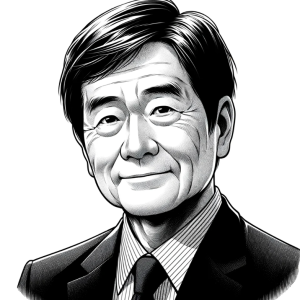 佐藤さんは、70歳。長年勤めた会社を定年退職して、今は、区役所で案内の仕事をしています。仕事を通じて知り合った詩織さんと健人くんと一緒に割り勘について話しています。
佐藤さんは、70歳。長年勤めた会社を定年退職して、今は、区役所で案内の仕事をしています。仕事を通じて知り合った詩織さんと健人くんと一緒に割り勘について話しています。
佐藤:「ちょっと聞くけど、若い人たちの間では、今、割り勘が普通なのかい?」
健人:「はい、そうですね。大体、みんなで割り勘にすることが多いです。」
詩織:「私たちの世代では、自分の分は自分で払うのが当たり前って感じですね。」
佐藤:「昭和の時代はね、男性が女性を食事に誘ったら、当然、男性が全額払うものだったよ。」
健人:「今でもそういう場合はありますけど、大体は割り勘ですね。」
詩織:「私も、借りを作りたくないし、自立してる感じがするから、割り勘の方が気が楽です。」
佐藤:「そうなんだね?ほんとに時代が変わったね。昔は女性もおごってもらうのを当然と思ってたみたいだけど、今は違うの?」
健人:「はい、特に若い人たちの間では、お互いの負担を減らすためにも、割り勘が一般的です。」
詩織:「それに、割り勘だと気軽に誘いやすいですし、金銭的なプレッシャーも少ないですよね。」
佐藤:「なるほどね。お金のことで気を使わずに、みんなで楽しめるのが一番だね。」
由紀子:皆さんは普段割り勘が多いですか?ちょっと前はお金を集めて割り勘ってあったんですが、今は電子マネーを使う人が多いので、paypay や LINE、楽天payなどには割り勘機能がついているそうで、スマホ一つで割り勘、支払い、友達にお金を送るなども、わざわざ口座番号を教えずにできるようになっているそうなんです。しかも、割り勘アプリによっては、参加者が同じアプリをインストールしていなくても料金が徴収できるというのですから、すごいですね。会話の中で詩織さんが話していた言葉について話してみましょう。
借りを作りたくない とは、相手に対して同等ではなく、自分が相手に何か借りているような負い目があることが嫌だという意味ですね。例えば、いつも、おごってもらっていると、自分が相手に対して少し引け目を感じて言いたいことも100%言えなくなるとか、いやな仕事を頼まれても、断れなくなるとか。そんなニュアンスです。
自立している。 とは、自分の足で立っているので、誰かを頼っていない、誰かを頼らずに一人で生活していけている という意味です。
About Going Dutch
Sato: “Just wondering, is going Dutch common among young people now?”
Kento: “Yes, it’s quite common. Usually, we split the bill.”
Shiori: “In our generation, it’s normal to pay for our own part.”
Sato: “Back in the Showa era, if a man invited a woman to dinner, it was natural for the man to pay the full amount.”
Kento: “That still happens sometimes, but usually, we go Dutch.”
Shiori: “I prefer going Dutch because I don’t want to feel indebted and it feels more independent.”
Sato: “Is that so? Times really have changed. In the past, women used to expect men to pay, but is it different now?”
Kento: “Yes, especially among young people, going Dutch is common to reduce each other’s burden.”
Shiori: “Plus, it’s easier to invite someone casually, and there’s less financial pressure.”
Sato: “I see. The best thing is to enjoy without worrying about money.”
Yukiko: “Do you often go Dutch? In the past, we used to collect money and split the bill, but now many people use electronic money. Apps like PayPay, LINE, and Rakuten Pay come with a feature for splitting bills. With just a smartphone, you can split bills, make payments, and send money to friends without needing to share bank account numbers. Moreover, some splitting apps allow you to charge participants even if they haven’t installed the same app. Amazing, isn’t it? Let’s talk about the phrase Shiori mentioned in the conversation.
‘I don’t want to be indebted’ means not wanting to feel inferior or as if you owe something to the other person. For example, if someone always treats you, you might feel inferior and unable to speak your mind completely, or you might find it hard to refuse a request for an unpleasant task. That’s the nuance.
‘Being independent’ means standing on your own feet, not relying on anyone, and being able to live by oneself.”
關於AA制
佐藤:「我想問一下,現在年輕人之間通常是AA制嗎?」
健人:「是的,這很常見。通常我們會平分賬單。」
詩織:「在我們這一代,自己付自己的份額是很正常的。」
佐藤:「在昭和時代,如果男性邀請女性吃飯,男性支付全部費用是理所當然的。」
健人:「現在有時候還是這樣,但通常我們會AA制。」
詩織:「我更喜歡AA制,因為我不想欠人情,而且感覺更獨立。」
佐藤:「是這樣嗎?時代真的變了。以前,女性似乎認為被男性請客是理所當然的,但現在不一樣了?」
健人:「是的,特別是在年輕人之間,為了減輕彼此的負擔,AA制很普遍。」
詩織:「而且,AA制讓人更輕鬆地邀請對方,金錢壓力也小了。」
佐藤:「我明白了。最重要的是大家不用擔心金錢,享受快樂。」
由紀子:「你們平時多採用AA制嗎?以前我們會收錢後AA制,但現在很多人使用電子貨幣,像PayPay、LINE、樂天Pay等都有AA制功能,只需一部智能手機就可以分攤賬單、支付款項、給朋友轉賬,而且不需要交換銀行帳號。而且,一些分攤應用即使參與者沒有安裝相同的應用也能收費,這真的很驚人。讓我們談談詩織在對話中提到的那句話。
「不想欠人情」意味著不想感到自己比別人低一等或仿佛欠了別人什麼。例如,如果總是被請客,你可能會感到自己在對方面前有所不足,無法完全表達自己的想法,或在被要求做不愉快的工作時難以拒絕。這就是那種含義。
「獨立」意味著靠自己站立,不依賴任何人,能夠一個人生活。



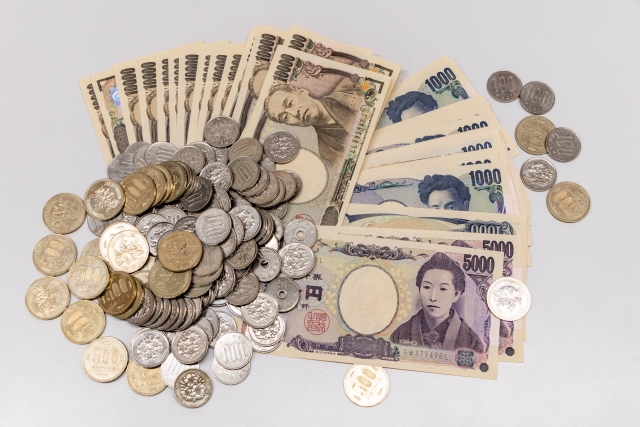






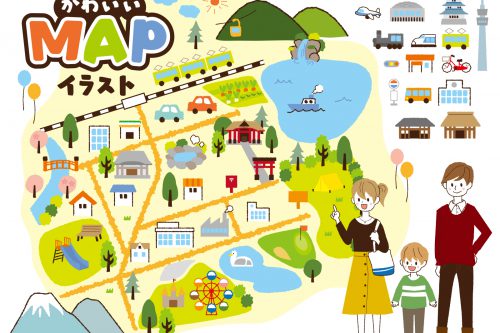

 Yukiko
Yukiko






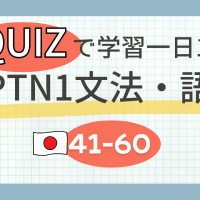
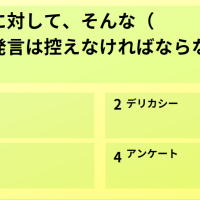

この記事へのコメントはありません。